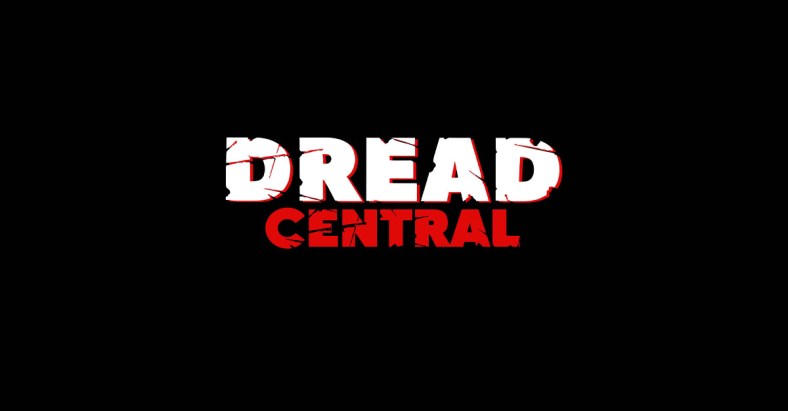What The Fest 2019: DEPRAVED Review – A Quiet Meditation on Bad Dads and Hubris


Starring David Call, Alex Breaux, Joshua Leonard
Written by Larry Fessenden
Directed by Larry Fessenden
The story of Frankenstein’s Creation is filled with tragic elements, the most striking of which is that, at his core, the Creation is essentially a toddler feeling his way about in a new and scary world. Larry Fessenden leans heavily into this while swapping Gothic locales for big city warehouses in his latest feature, Depraved.
Henry (David Call), a tortured combat surgeon suffering from PTSD, fulfills the role of our infamous God-playing doctor, making a man out of a hodgepodge of body parts (but the majority came from one body) and resurrecting him in a loft in Brooklyn. The man, Adam (Alex Breaux), rapidly comes of age and slowly comes to terms with his new existence in a world that isn’t ready for him.
The creature in this re-imagining is a sympathetic one, with a noteworthy departure from the James Whale adaptation we all know and love. The creature of 1931’s Frankenstein is coded as a villain since his brain was procured from a criminal. Adam is more of a chaotic neutral, whose role isn’t imposed upon him as far as good and evil go. Alex Breaux’s performance is a minimalist but simmering one that calls to mind Hugh Armstrong’s turn as a nearly-mute cannibal in Death Line (an equally memorable macabre-but-with-heart joint from 1973). Breaux has the range to cover both Adam’s child-like awe at the world around him and his devastating frustration at his inability to adapt and assimilate to that same world. Add to that Call’s performance as a conflicted creator (and all things considered, an irresponsible dad), and you have a talented tag team of actors grounding the lofty narrative discourse.
DPs James Siewert and Chris Skotchdopole wield their camera with surgical precision, suturing together varying techniques with intent to character (a body-mounted cam underlines the destabilization of Adam’s understanding of the world as he knows it) and intensity. A quiet but memorable moment in the film has Henry attempting to stimulate Adam’s brain function with matching games and story time in a sequence like Disney’s Tarzan, with less Phil Collins and more coffee shop blues (which fits just fine in a story set amongst Brooklyn’s hipster-filled industrial district). Psychotropic neon-soaked splotches sprinkle along the screen as Adam learns, a trippy externalization of the growing synapse sparks in Adam’s brain. The film is full of visual callbacks and replaying motifs throughout, in the story and on a macro level with visual throwbacks to the Universal horror era. Flashbacks and breadcrumbs of memory dot Adam’s consciousness, echoes of humanity peppered in conservatively which avoids monotonous repetition.
Some noteworthy makeup design has Adam’s hodgepodge of body parts at various stages of healing. Pete Gerner and Brain Spears’ prosthetics are seamless, allowing for intimate close-ups and over-the-shoulder shots that endear to Adam and highlight his grotesque brand of humanity.
While the story of Frankenstein inspires explorations on creation and draws parallels to Icarus, the script for Depraved gets a bit indulgent with its tangents. A museum tour sequence with Adam and his doctor’s financier Polidori (Joshua Leonard) shoots for commentary on the human condition, but the Goethe-saturated dialogue and montage of antiquities adds up to a plot digression that trips up the already modest pacing. The scoundrel providing the commentary had already established himself as the Honest John to Adam’s Pinocchio in the preceding and following scenes, exposing the creation to man’s vices. While Joshua Leonard’s performance as vulturous heel Polidori is consistent with his outstanding 2010 turn as an insufferable critic in Joe Maggio’s Bitter Feast (also produced by Fessenden), this several-minute stretch of the story adds nothing that wasn’t already incorporated, and the presence of a handful of these digressions brings the pacing from a monster shuffle down to an uneven, undead stumble.
Two hundred years after Mary Shelley herself created a monster and haunted our dreams, Larry Fessenden’s contemporary retelling reanimates the old yarn with tender care for the story on the slab. As with other Frankenstein adaptations, Depraved shines a surgeon’s light onto the consequences of scientific progress, and the human hubris that
-
Depraved
Summary
Depraved is a solid entry in Larry Fessenden’s body of work, with a fresh enough approach and enough emotional weight to justify yet another Frankenstein retelling. Tedious tangents of commentary threaten to undermine what Fessenden’s great command of craft had already shown the audience, but the overall viewing experience is a fine one.
Categorized:Reviews

